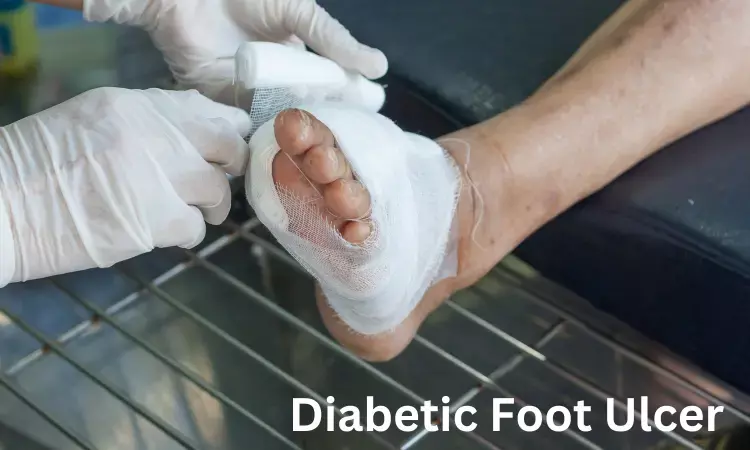- Home
- Medical news & Guidelines
- Anesthesiology
- Cardiology and CTVS
- Critical Care
- Dentistry
- Dermatology
- Diabetes and Endocrinology
- ENT
- Gastroenterology
- Medicine
- Nephrology
- Neurology
- Obstretics-Gynaecology
- Oncology
- Ophthalmology
- Orthopaedics
- Pediatrics-Neonatology
- Psychiatry
- Pulmonology
- Radiology
- Surgery
- Urology
- Laboratory Medicine
- Diet
- Nursing
- Paramedical
- Physiotherapy
- Health news
- Fact Check
- Bone Health Fact Check
- Brain Health Fact Check
- Cancer Related Fact Check
- Child Care Fact Check
- Dental and oral health fact check
- Diabetes and metabolic health fact check
- Diet and Nutrition Fact Check
- Eye and ENT Care Fact Check
- Fitness fact check
- Gut health fact check
- Heart health fact check
- Kidney health fact check
- Medical education fact check
- Men's health fact check
- Respiratory fact check
- Skin and hair care fact check
- Vaccine and Immunization fact check
- Women's health fact check
- AYUSH
- State News
- Andaman and Nicobar Islands
- Andhra Pradesh
- Arunachal Pradesh
- Assam
- Bihar
- Chandigarh
- Chattisgarh
- Dadra and Nagar Haveli
- Daman and Diu
- Delhi
- Goa
- Gujarat
- Haryana
- Himachal Pradesh
- Jammu & Kashmir
- Jharkhand
- Karnataka
- Kerala
- Ladakh
- Lakshadweep
- Madhya Pradesh
- Maharashtra
- Manipur
- Meghalaya
- Mizoram
- Nagaland
- Odisha
- Puducherry
- Punjab
- Rajasthan
- Sikkim
- Tamil Nadu
- Telangana
- Tripura
- Uttar Pradesh
- Uttrakhand
- West Bengal
- Medical Education
- Industry
Diabetic foot complications tied to increased risk of all-cause mortality in type 2 diabetes patients

Italy: A recent study published in Cardiovascular Diabetology comprising individuals with type 2 diabetes (T2D) and a history of diabetic foot complications showed a significant ~50% rise in the risk of all-cause mortality over a follow-up period of 7.42 years. Diabetic foot complications include amputation, ulcer/gangrene, and lower limb revascularization.
Amputation exhibited the strongest association, surpassing the influence of gangrene/ulcer, while revascularization alone showed a relatively modest effect.
Diabetic foot ulcers (DFUs) are common long-term complications of diabetes that occur in 19 to 34% of patients during their lifetime, with recurrence rates of ~ 65% at 3–5 years. They are associated with increased mortality, particularly from cardiovascular disease, though not many studies have investigated the independent contribution of these events to the risk of death.
To fill this knowledge gap, Giuseppe Pugliese, “La Sapienza” University, Via di Grottarossa, Rome, Italy, and colleagues aimed to evaluate the association of history of diabetic foot with all-cause mortality in individuals with T2D, independent of cardiovascular risk factors, other comorbidities and complications by conducting a prospective cohort study.
The study enrolled 15,773 Caucasian patients in 19 Italian centers from 2006–2008. Prior lower extremity, cerebrovascular, and coronary events and major comorbidities were ascertained by medical records, diabetic kidney disease by albuminuria and estimated glomerular filtration rate, diabetic retinopathy by fundoscopy, and cardiovascular risk factors by standard methods. All-cause mortality was retrieved for 15,656 patients on 31 October 2015.
The study revealed the following findings:
· At baseline, 5.7% of patients had a history of diabetic foot, including ulcer/gangrene and/or amputation (3.58%), with (0.80%) or without (2.78%) lower limb revascularization, and revascularization alone (2.09%).
· History of diabetic foot was associated with all-cause death over a 7.42-year follow-up (adjusted hazard ratio, 1.502), independent of confounders, among which age, male sex, haemoglobin A1c, smoking, current treatments, other complications, comorbidities and, inversely, physical activity level and total and HDL cholesterol were correlated independently with mortality.
· Both ulcer/gangrene and amputation alone were independently associated with death, with a higher strength of association for amputation than for ulcer/gangrene (1.874 versus 1.567).
· Both ulcer/amputation/gangrene and lower limb revascularization alone were independently associated with death; mortality risk was much higher for ulcer/gangrene/amputation than for revascularization (1.641 versus 1.229) and further increased only slightly for combined ulcer/gangrene/amputation and revascularization (1.733).
"In patients with type 2 diabetes from the RIACE cohort, a history of diabetic foot events, including ulcer/gangrene, lower limb revascularization, and amputation, was associated with a ~ 50% increased risk of subsequent death from any cause, independent of cardiovascular disease risk factors, other complications and severe comorbidities, which were also significantly associated with mortality," the researchers wrote.
"The association with mortality was greatest for amputation, whereas that for revascularization alone was relatively modest," they concluded.
Reference:
Vitale, M., Orsi, E., Solini, A. et al. Independent association of history of diabetic foot with all-cause mortality in patients with type 2 diabetes: the Renal Insufficiency And Cardiovascular Events (RIACE) Italian Multicenter Study. Cardiovasc Diabetol 23, 34 (2024). https://doi.org/10.1186/s12933-023-02107-9
Dr Kamal Kant Kohli-MBBS, DTCD- a chest specialist with more than 30 years of practice and a flair for writing clinical articles, Dr Kamal Kant Kohli joined Medical Dialogues as a Chief Editor of Medical News. Besides writing articles, as an editor, he proofreads and verifies all the medical content published on Medical Dialogues including those coming from journals, studies,medical conferences,guidelines etc. Email: drkohli@medicaldialogues.in. Contact no. 011-43720751


